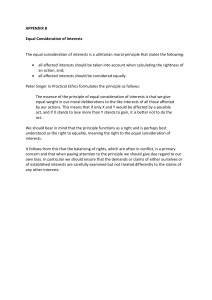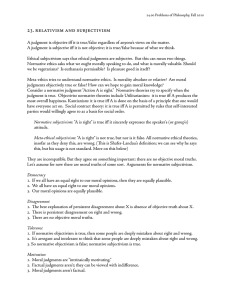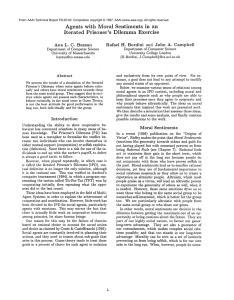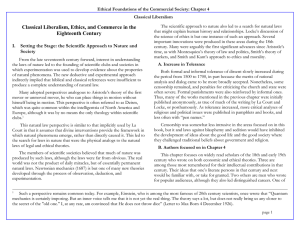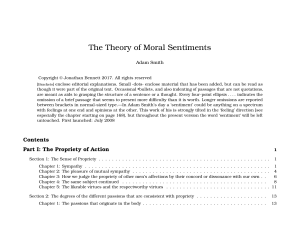‘Understanding the (new) moral economy of regulating lawyers: reflections on
advertisement
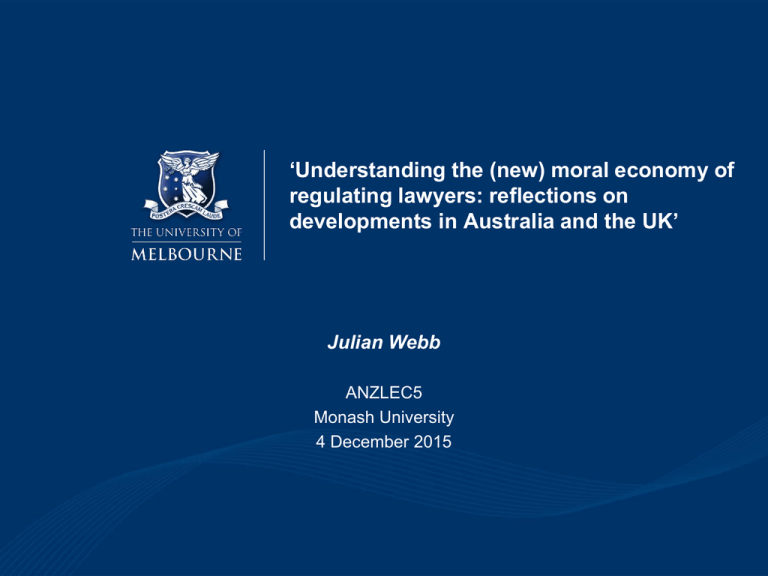
‘Understanding the (new) moral economy of regulating lawyers: reflections on developments in Australia and the UK’ Julian Webb ANZLEC5 Monash University 4 December 2015 Synthesis Moral economy (in case you thought lawyers’ ethics was an oxymoron…) • From political economy, social history, anthropology, economic sociology, development economics – Andrew Sayer (2000): “the ways in which economic activities - in the broad sense - are influenced by moral-political norms and sentiments, and how, conversely, those norms are compromised by economic forces.” • Hume: ethics as a mix of personal benefit/utility, personal commitments and sentiments extending our concerns for others • Smith’s ethical economics: reading The Wealth of Nations through the Theory of Moral Sentiments …and (theory) construction and the realignment of ‘regulatory space’: • the study of the dynamics through which organisations gain, maintain, and sometimes lose their positions within a regulatory arena (Black, 2002; Hancher & Moran, 1989) • the idea that resources and information are dispersed and fragmented among a group of constituents in an area of governance, and hence that power may be dispersed rather than concentrated [in the hands of government] (Scott, 2001) • Context of “street level morality” (Cf Lipsky) The (new) moral economy of professional regulation • Changing modes of regulation (external/internal; ‘hard’/‘soft’ regulation) • Normative partitioning • Re-categorising the ‘internal goods’ of the profession The mode of regulation The rise of a ‘consumerist-competitive mode of regulation’ (Semple et al, 2013): • • • • Competition between providers Consumer rights orientation Multiple legal occupations Co- or external regulation (+ regulatory competition in E&W) • Tolerance of unregulated providers • Regulation of individuals and entities Normative partitioning • Professional segmentation • Deprofessionalisation – Liminality – Precarity – Scarcity/loss of ‘compleat lawyer’ roles • Deterritorialisation of identity? – Increased mobility – FLCs Internal goods (MacIntyre, 1988) • De-moralisation and re-moralisation • The ‘new’ virtues (eg) – Profitability – Performativity – Compliance • The regulation of altruism (and the economics of regard) Provisional conclusions • Changing moral economy – Loss of individual and collective moral autonomy – Changing street level morality • New regulatory dynamics/key players – External regulators – Clients – Firms – Insurers







